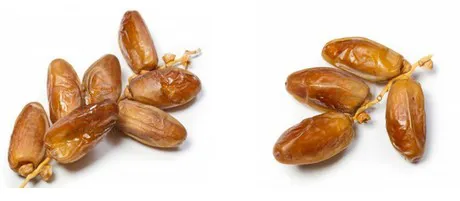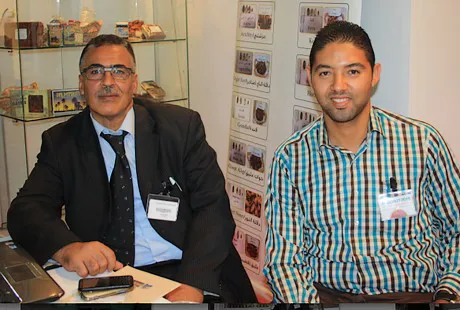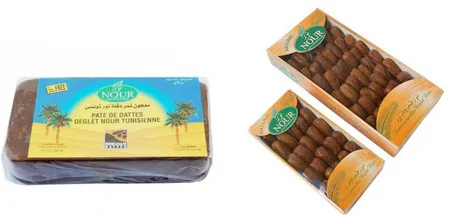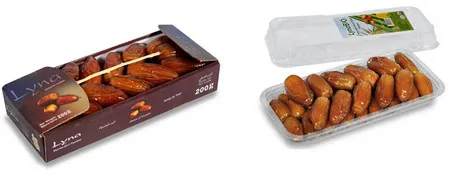
Cultivation in south
Tunisia is home to about 5.4 million palm trees with dates. The production of dates takes place in four oases in the south of Tunisia, seeing how these are in the Sahara. According to their geographical location and bioclimatic conditions, we distinguish several kinds of oases: the continental oases (the Djerid and the Nefzaoua oases), the coastal oases (the oasis of Gabes) and the high oases (the oasis of Gafsa). This bioclimatic diversity allows the production of more than 150 varieties of dates over a large period, from the beginning of October until the end of December. "But only 4 of them are of economic interest, these are: Deglet Nour, Allig, Khouat Allig and Kenta", says Anis Zouba, engineer in the Technical Centre of Dates. Deglet, marketed since 1870, is known like “date of the brilliant light” for its translucent fair color, the softness of its aspect and the elegance of its form. It is the variety most appreciated in the world for its higher quality and its special taste."

Foued Ben Hamida (left) and Anis Zouba (right) during Macfrut 2015.
"The total production of Tunisian dates in 2000/2001 was a little over 104,000 tonnes. In the past years, this has more than doubled, and in 2014 the volume amounted to 225,000 tonnes. In 2015, the expected production is 245,000 tonnes in total. After harvest, the dates are forwarded to the stations of conditioning. These units of conditioning are equipped with physicochemical and bacteriological analysis laboratories allowing a rigorous follow-up of quality. All certifications are delivered by competent authorities and are subjected to a rigorous regulation using of controls by a meticulous person in order to ensure an irreproachable quality system."

For Tunisian dates, up to 60% are intended for export. They are sold in more than 57 countries distributed out of the five continents. The European markets are most important. The export value reached nearly 200 million Euro in 2014. Tunisia is the number 11 producer of dates in the world. In terms of export volume they're in the top three, and in export value they're number one in the world. "This is because the prices of our dates are generally higher thanks to the high quality," Foued Ben Hamida explains.

For more information:
CTD
Foued Ben Hamida
B.P 20 - route de Gabes
4280 - Kebili - Tunisie
foued.bhmida@yahoo.fr
ctd@topnet.tn
www.ctd.tn
